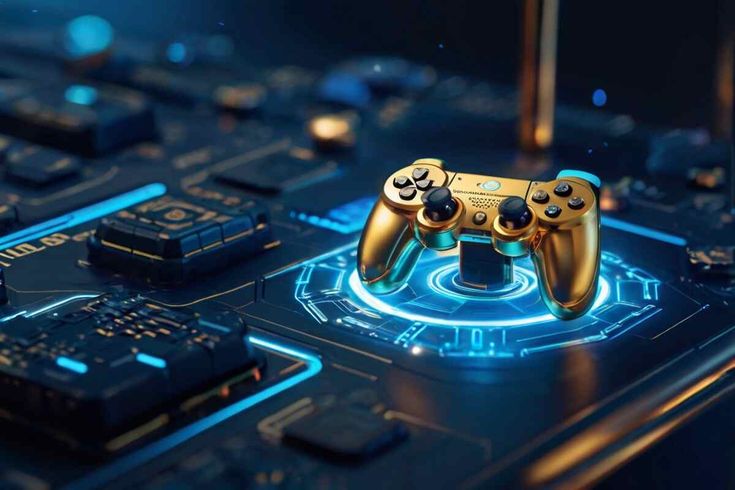As we enter 2025, something revolutionary is seen in the realm of gaming technology, spearheaded by blockchain progress. Blockchain game development is no longer alone in shaping the future of the interactive entertainment scene; rather, it’s blended with the other two developments Android game development and iOS game development. Read on to explore how blockchain redefines gaming, and what these changes mean to developers and end-users.
The Emergence of Blockchain Games
Blockchain gaming is a decentralized technology that brings about unique experiences to the players.
Some Key Features of Blockchain Games:
- Real Ownership of Assets: The assets of in-game items, such as characters, weapons, and skins, can be owned as NFTs by the players. They can be sold or traded out of the game environment, hence, giving players real-world value for their digital items.
- Decentralized Economy: The blockchain games operate on a decentralized economy. In this model, players earn cryptocurrency through playing and create a P2E model.
- Interoperability: Assets of a blockchain game can be frequently reused in another blockchain game because of standardization protocols.
- Transparency and Security: Smart contracts make the game fair, and fraud cannot occur, making the gaming experience trustworthy.
Impact of Blockchain on Android and iOS Game Development
Blockchain has altered the complexion of mobile gaming. This high-integrating industry is mobile gaming, and let’s see how blockchain changes the face of Android game development and iOS game development.
Improve User Experience
Blockchain allows developers to create more engaging and rewarding experiences in gaming. For instance, mobile games have tokenized rewards that can be traded or withdrawn as real-world currency.
Streamlined Monetization
Blockchain offers new monetization streams to mobile game developers. In-app purchases by cryptocurrency and NFT marketplaces offer sustainable streams of revenue for developers, with value also delivered to players.
Security and Fairness
Blockchain technology brings robust security protocols into the development of both Android and iOS games. Smart contracts ensure fair play and protect data about players to build trust and loyalty.
Trends in 2025 Game Development
The confluence of blockchain technology with Android and iOS game development is giving rise to a few trends:
Play-to-Earn (P2E) Models
Play-to-earn games are no longer a niche market. Today, they stand as the dominant trend in 2025 with millions of gamers worldwide. Such games reward cryptocurrency or NFTs to the players for doing specific tasks achieving certain milestones or winning in tournaments.
Cross-Platform Compatibility
The developers aim to develop blockchain games development that can be cross-platform compatible. That, therefore means game development that can be compatible with Android, iOS, and PCs ensures seamless gaming and increases the player base.
Gamification Application in Other Nongaming Sectors
Community-Driven Development
Challenges and Opportunities
Challenges:
- Scalability: High transaction costs and network congestion can hinder the performance of blockchain games.
- Regulatory Uncertainty: Still, the governments of the world are figuring out the regulations on cryptocurrencies and NFTs, so that continues to be uncertain for developers.
- User Education: Most users are unaware of blockchain technology; therefore it’s up to the developers to keep the interfaces user-friendly and offer educational material.
Opportunities:
- Innovative Game Mechanics: Blockchain allows the developer to try out new game mechanics such as tokenized rewards and player-driven economies.
- Expanding Markets: The potential market for blockchain-based Android and iOS games is quite enormous, owing to the increasingly growing trend of smartphone usage.
- Partnerships and Collaborations: Blockchain platforms would enable developers to utilize advanced tools and resources that speed up the development process.
- Learn Blockchain Basics: Learn about blockchain, smart contracts, and NFTs.
- Leverage Game Engines: Develop games with game engines like Unity or Unreal Engine, which supports blockchain integration.
- Focus on user experience: One should make the game simple and easy to operate to attract more users.
Conclusion
Blockchain integration into mobile games created unprecedented opportunities for developers and gamers. From actual ownership of game assets to novel play-to-earn models, the possibilities go on and on. Success for developers is improving the technology and solving the issues it brings to develop those games that get close to players’ hearts. The future of gaming now lies in the blockchain. Will you join in? Contact us for more details!


